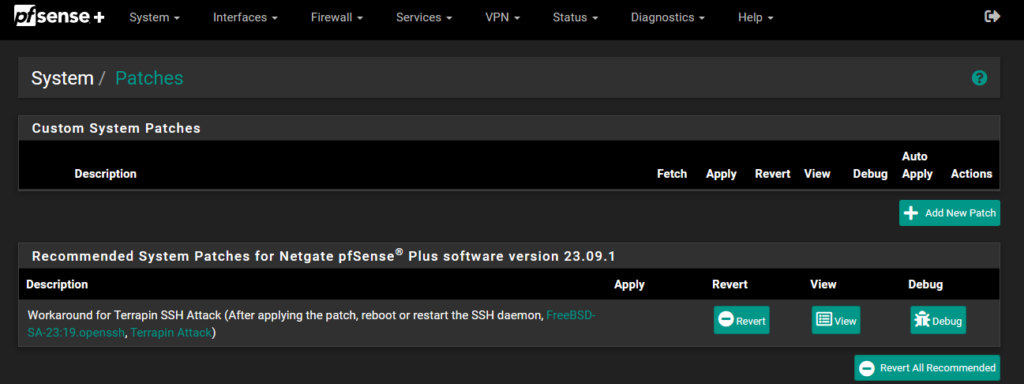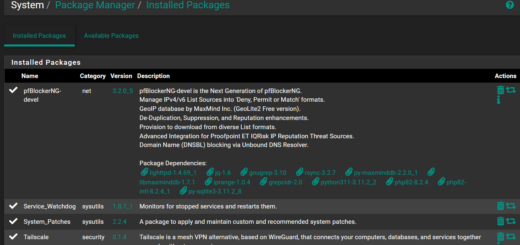Understanding the Importance of the Recent OpenSSH Patch in pfSense
Understanding the Importance of the Recent OpenSSH Patch in pfSense
The FreeBSD Project recently issued a crucial security advisory (FreeBSD-SA-23:19.openssh) that highlights a significant vulnerability in OpenSSH—a widely used suite for secure remote communication. This advisory is particularly relevant for users of pfSense, a popular open-source firewall and router software based on FreeBSD.

The Vulnerability: Prefix Truncation Attack
Identified as CVE-2023-48795, the security flaw involves a “Prefix Truncation Attack” in the SSH protocol’s handshake mechanism. Attackers can exploit this vulnerability to manipulate handshake messages silently, potentially weakening client authentication algorithms or disabling keystroke timing attack countermeasures. This vulnerability affects all supported versions of FreeBSD.
Immediate Action Required
Given the severity of the issue, it’s vital for administrators to patch their systems immediately. For pfSense users, this means ensuring their system incorporates the latest FreeBSD patches. The advisory provides detailed steps for updating systems either through binary patches via freebsd-update or by applying source code patches directly.
Workaround and Long-Term Solution
Until systems can be fully updated, a temporary workaround is provided, involving specific changes to the OpenSSH configuration files to mitigate the risk. However, this is only a stopgap measure, and administrators are strongly encouraged to apply the full updates as soon as possible to ensure the integrity and security of their systems.
Conclusion
This advisory serves as a reminder of the constant vigilance needed in maintaining the security of network systems like pfSense. Administrators should take immediate action to apply this patch and regularly monitor for further updates to protect against evolving threats. The quick response and detailed guidance provided by the FreeBSD Security Team reflect the ongoing commitment to security within the open-source community.









